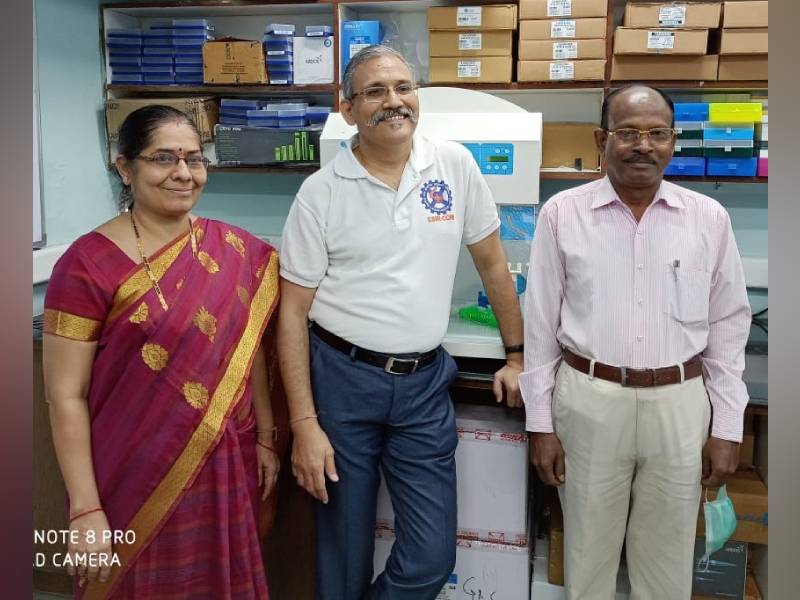Genetic risk score to help diagnose diabetes among Indians: CCMB Study
By Newsmeter Network
Hyderabad: A new study has revealed that a genetic risk score is effective in diagnosing type-1 diabetes among Indians.
Conducted by researchers at CSIR-Centre for Cellular and Molecular Biology (CCMB), Hyderabad, KEM Hospital Pune, and the University of Exeter in the UK, the study has revealed some interesting facts that could help in diabetes diagnosis and treatment in India.
While type 1 diabetes needs lifelong insulin injections, type 2 diabetes can be managed with diet and oral medication. Earlier, it was believed that that type 1 diabetes occurs in children and adolescents, and type 2 diabetes hit obese and older (typically after 45 years of age).
However, recent findings have shown that type 1 diabetes can occur later in life, while type 2 diabetes is on the rise among younger and thinner Indians.
The researchers noted that these two types of diabetes require completely different treatments and their misdiagnosis has been common in India.
The researchers also noted that most of the studies on diabetes have been held on people in Europe. Now, researchers have analyzed whether the European risk score is effective in diagnosing type 1 diabetes in Indians, which is elaborated in a paper published in ‘Scientific Reports’.
The team studied people with diabetes from Pune, India. The team analyzed 262 people with type 1 diabetes, 352 people with type 2 diabetes, and 334 people without diabetes.
The findings revealed that the test is effective in diagnosing the right type of diabetes in Indians. The genetic differences in the population have had an impact on the findings. Besides, the test could be further improved to enhance the outcome for Indian populations, the researchers found.
Nine genetic areas (called the SNPs) correlate with type 1 diabetes found both in Indian and European populations and can be used to predict the onset of type 1 diabetes in Indians.
Dr. GR Chandak, Chief Scientist who led the study team at the CSIR-Centre for Cellular and Molecular Biology (CCMB), said it’s interesting to note that different SNPs are more abundant among Indian and European patients.
“This opens up the possibility that environmental factors might be interacting with these SNPs to cause the disease,” he said.
However, this study requires more data, given the genetic diversity of the Indian population. “Since more than 20 percent of people with type 1 diabetes below the age of 15 years are in India, developing a genetic test kit to reliably detect type 1 from type 2 diabetes holds a lot of significance for the country,” said Dr. Rakesh K Mishra, Director of the CSIR-Centre for Cellular and Molecular Biology (CCMB).